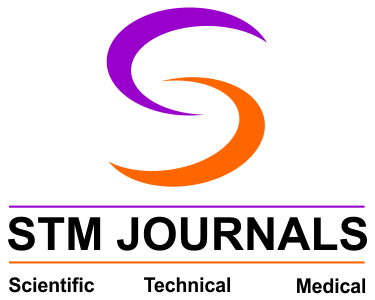
International Journal of Machine Design and Manufacturing

International Journal of Structural Mechanics and finite elements
ISSN: 2582-5054

International Journal of Mechanical Dynamics & Analysis

International Journal of Fracture and Damage Mechanics

International Journal of Architecture and Infrastructure Planning
ISSN: 2456-0154

International Journal of Rural and Regional Development

International Journal of Landscape Planning and Architecture
ISSN: 2456-5091

International Journal of Environmental Planning and Development Architecture
ISSN: 2584-1688

International Journal of Town Planning and Management
ISSN: 2456-5253

International Journal of Urban Design and Development
ISSN: 2584-0568

International Journal of Sustainable Building Technology
ISSN: 2583-3278

International Journal of Architectural Heritage
ISSN: 2583-2689

International Journal of Architectural Design and Planning
ISSN: 2583-8903

International Journal of Housing and Human Settlement Planning
ISSN: 2455-8516

Research & Reviews : A Journal of Ayurvedic Science, Yoga & Naturopathy
ISSN: 2395-6682

Research & Reviews : A Journal of Unani, Siddha and Homeopathy
ISSN: 2394-1960

Research & Reviews: A Journal of Pharmacognosy
ISSN: 2394-7276

Journal of AYUSH: Ayurveda, Yoga, Unani, Siddha and Homeopathy
ISSN: 2278-2214

Research & Reviews : Journal of Computational Biology
ISSN: 2319-3433

International Journal of Cell Biology and Cellular Processes

International Journal of Molecular Biotechnology

International Journal of Biochemistry and Biomolecules

International Journal of Computational Biology and Bioinformatics

International Journal of Genetic Engineering and Recombination

International Journal of Animal Biotechnology and Applications
ISSN: 2455-7315

International Journal of Plant Biotechnology
ISSN: 2456-0162

International Journal of Industrial Biotechnology and Biomaterials
ISSN: 2455-7323

Research & Reviews : A Journal of Biotechnology
ISSN: 2231-3826

Journal of Modern Chemistry & Chemical Technology
ISSN: 2229-6999
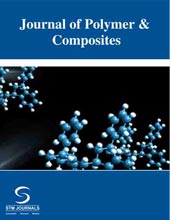
Journal of Polymer and Composites
ISSN: 2321–2810

Journal of Materials & Metallurgical Engineering
ISSN: 2231-3818

Journal of Petroleum Engineering & Technology
ISSN: 2231-1785

Emerging Trends in Chemical Engineering
ISSN: 2349-4786

Journal of Catalyst & Catalysis
ISSN: 2349-4344

Journal of Thin Films, Coating Science Technology & Application
ISSN: 2455-3344

International Journal of Chemical Separation Technology
ISSN: 2456-6691

International Journal of Chemical Engineering and Processing
ISSN: 2455-5576

International Journal of Renewable Energy and its Commercialization
ISSN: 2582-4120

International Journal of Prevention and Control of Industrial Pollution

International Journal of Chemical and Molecular Engineering

International Journal of Chem-informatics Research

International Journal of Green Chemistry
ISSN: 2582-5925
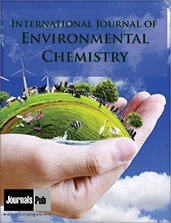
International Journal of Environmental Chemistry
ISSN: 2456-5245

International Journal of Agro-chemistry
ISSN: 2456-7000

International Journal of Analytical and Applied Chemistry
ISSN: 2582-5933

International Journal of Thermodynamics and Chemical Kinetics
ISSN: 2456-6977

International Journal of Photochemistry

International Journal of Chemical Synthesis and Chemical Reactions
ISSN: 2582-5917

Trends in Transport Engineering and Applications
ISSN: 2394-7284

Journal of Structural Engineering and Management
ISSN: 2393-8773

Journal of Water Resource Engineering and Management
ISSN: 2349-4336

Recent Trends in Civil Engineering & Technology
ISSN: 2249-8753

Journal of Construction Engineering, Technology & Management
ISSN: 2249-4723

Journal of Industrial Safety Engineering
ISSN: 2395-6674

Journal of Offshore Structure and Technology
ISSN: 2349-8986

Journal of Geotechnical Engineering
ISSN: 2394-1987

International Journal of Concrete Technology
ISSN: 2456-8317

International Journal of Structural Engineering and Analysis
ISSN: 2456-5326

International Journal of Transportation Engineering and Traffic System
ISSN: 2456-2343

International Journal of Construction Engineering and Planning
ISSN: 2456-2335

International Journal of Water Resources Engineering
ISSN: 2456-1606

International Journal of Geological and Geotechnical Engineering
ISSN: 2581-5598
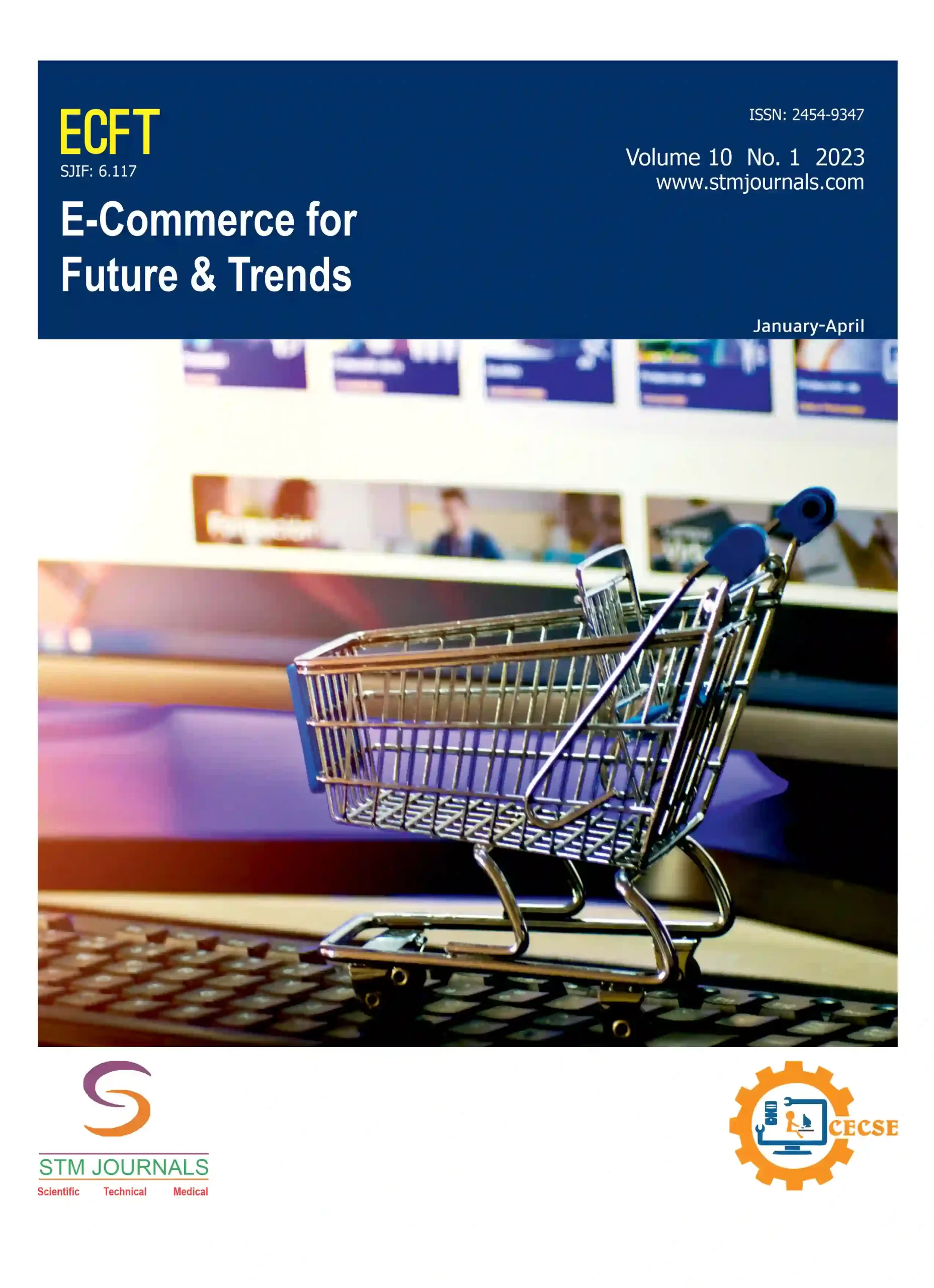
E-Commerce for Future & Trends
ISSN: 2454-9347

International Journal of Algorithms Design and Analysis

International Journal of Computer Science and Programming Language

International Journal of Data Structures

International Journal of Distributed Computing and Technology
ISSN: 2455-7307

International Journal of Image Processing and Pattern Recognition
ISSN: 2456-6985

International Journal of Information Security and Software Engineering

International Journal of Mobile Computing Devices

International Journal of Software Computing and Testing
ISSN: 2456-2351

International Journal of Wireless Network Security
ISSN: 2584-0703
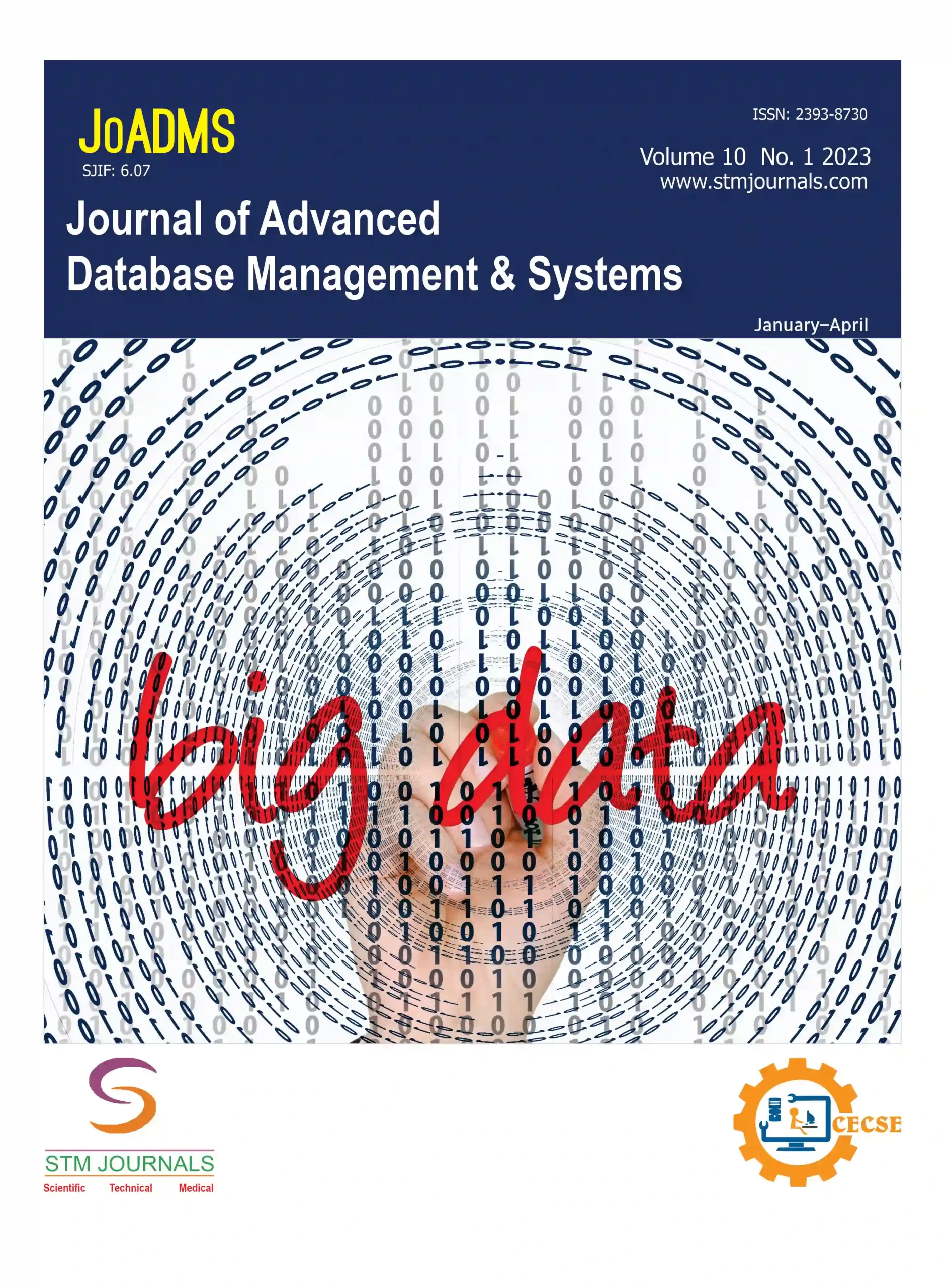
Journal of Advanced Database Management & Systems
ISSN: 2393-8730

Journal of Advancements in Robotics
ISSN: 2455-1872
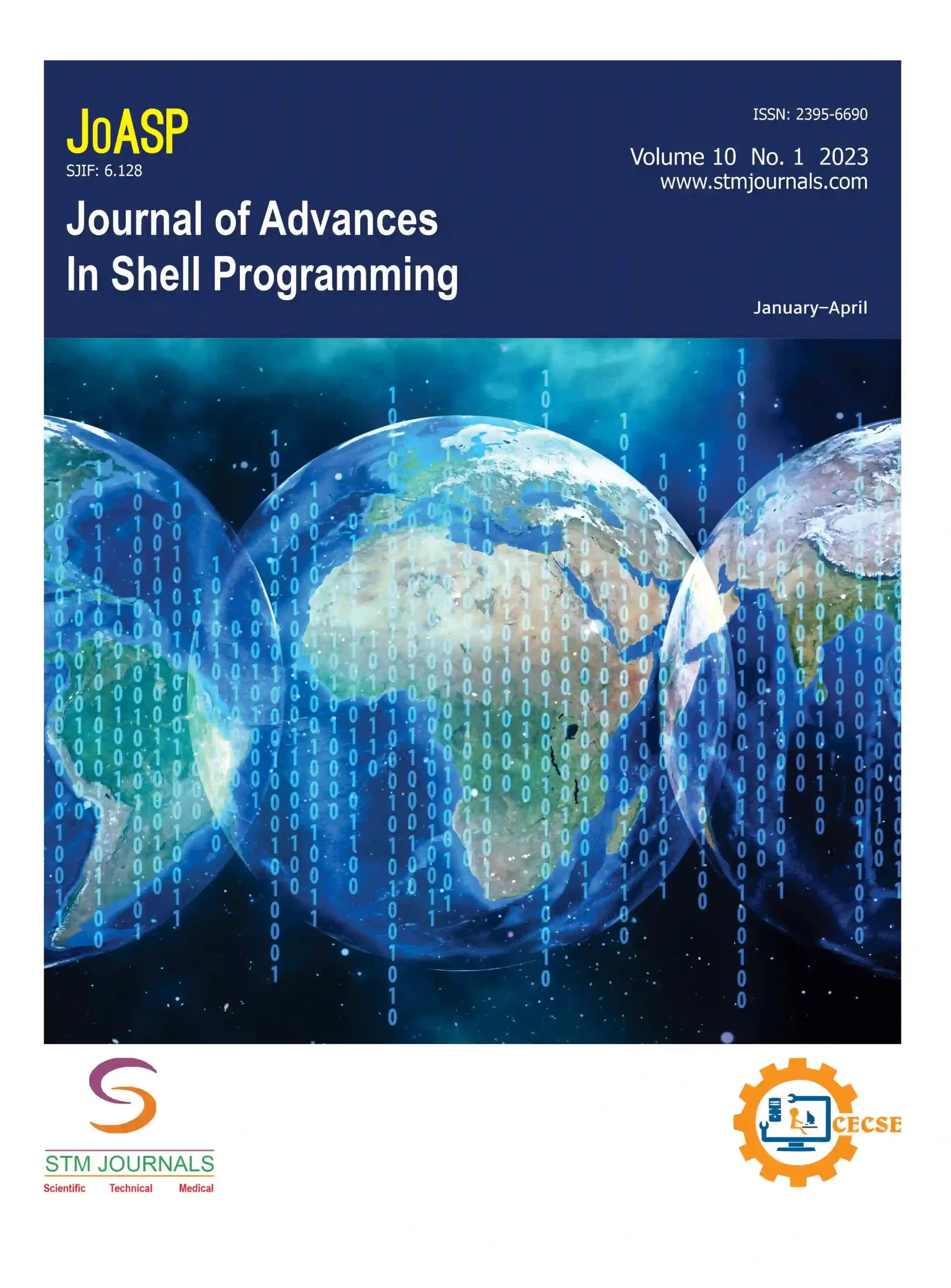
Journal of Advances in Shell Programming
ISSN: 2395-6690

Journal of Artificial Intelligence Research & Advances
ISSN: 2395-6720

Journal of Computer Technology & Applications
ISSN: 2229-6964

Journal of Image Processing & Pattern Recognition Progress
ISSN: 2394-1995

Journal of Mobile Computing, Communications & Mobile Networks
ISSN: 2349-901X

Journal of Multimedia Technology & Recent Advancements
ISSN: 2349-9028
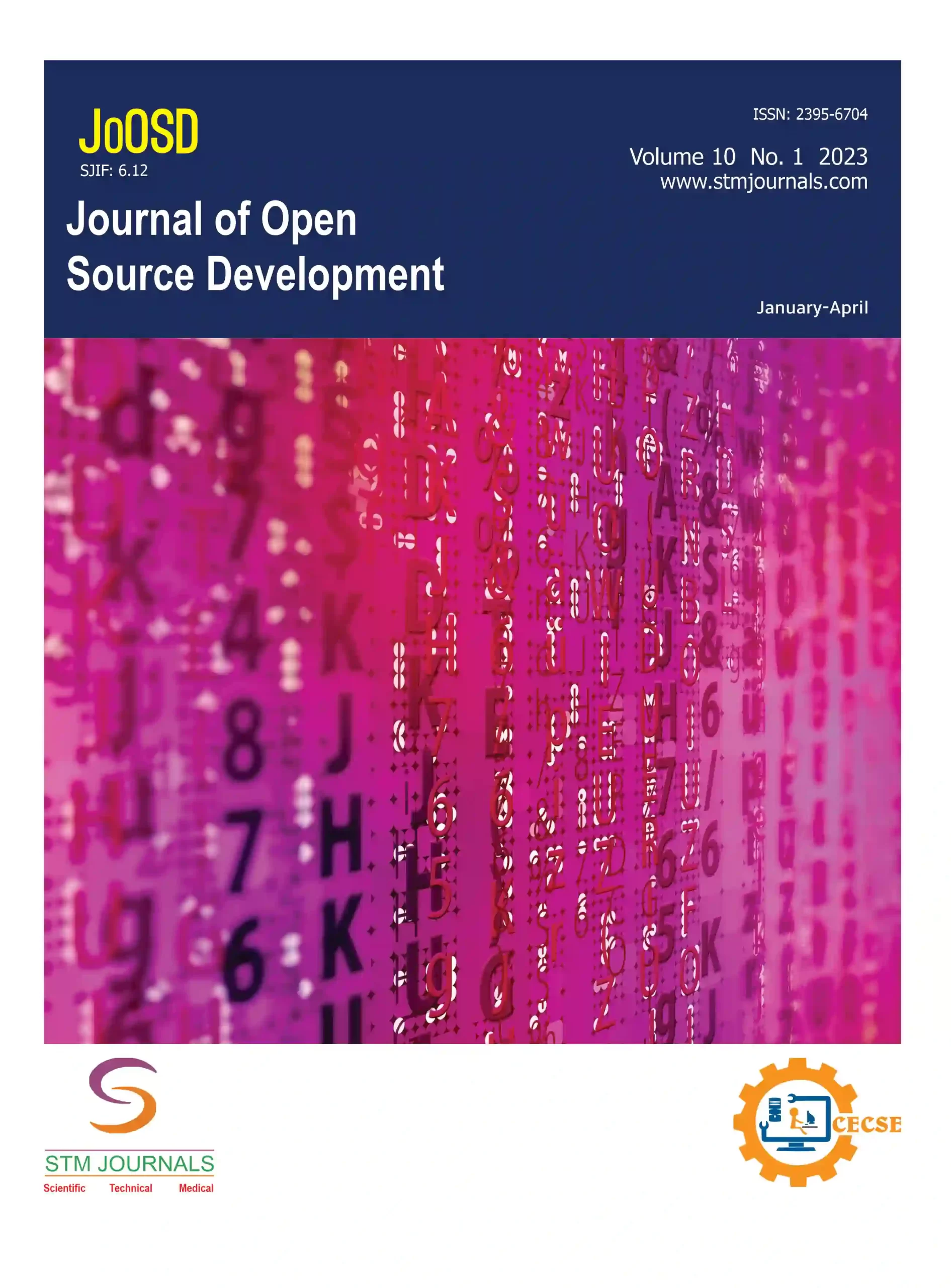
Journal of Open Source Developments
ISSN: 2395-6704
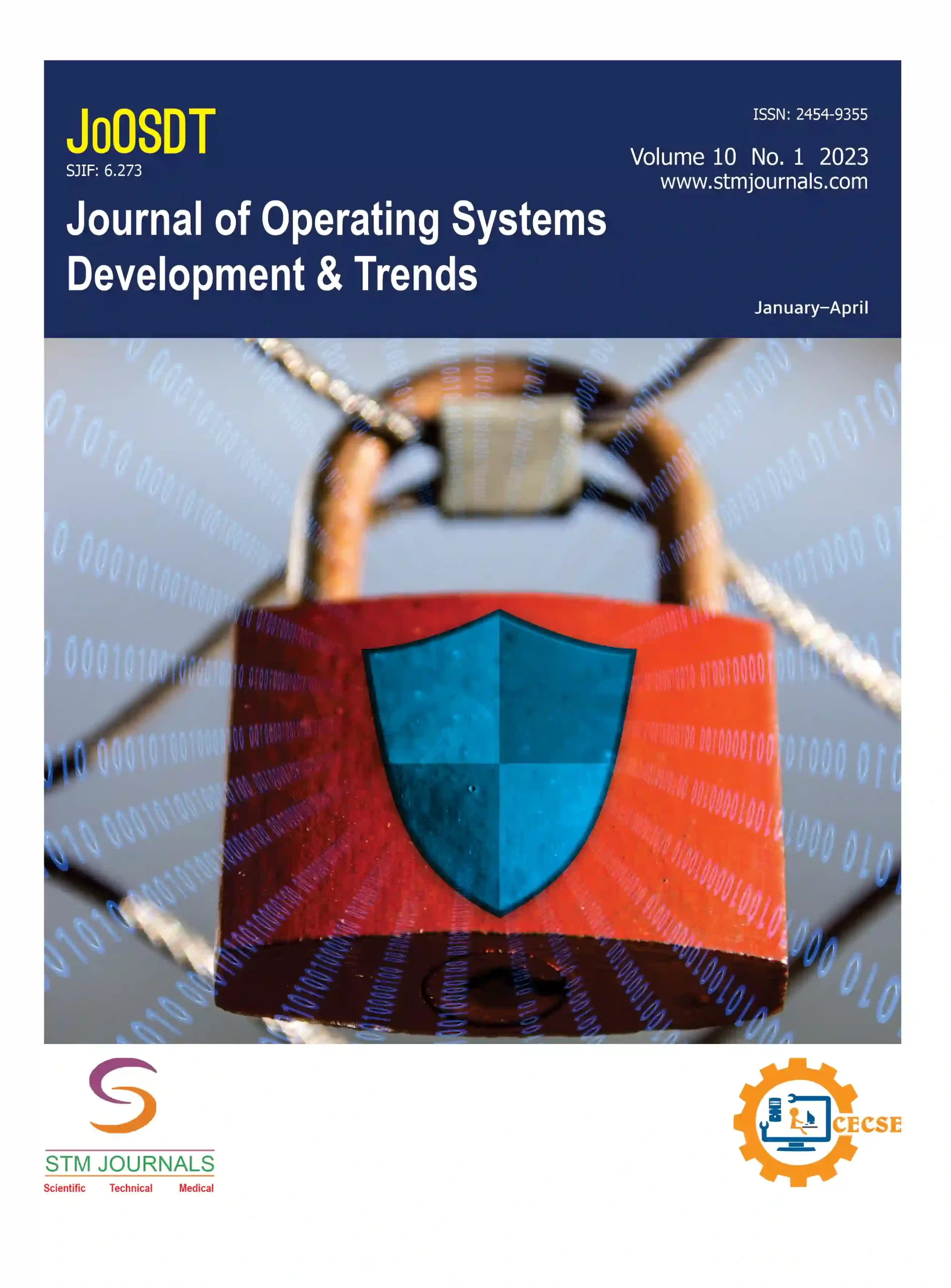
Journal of Operating Systems Development & Trends
ISSN: 2454-9355

Journal of Software Engineering Tools & Technology Trends
ISSN: 2394-7292
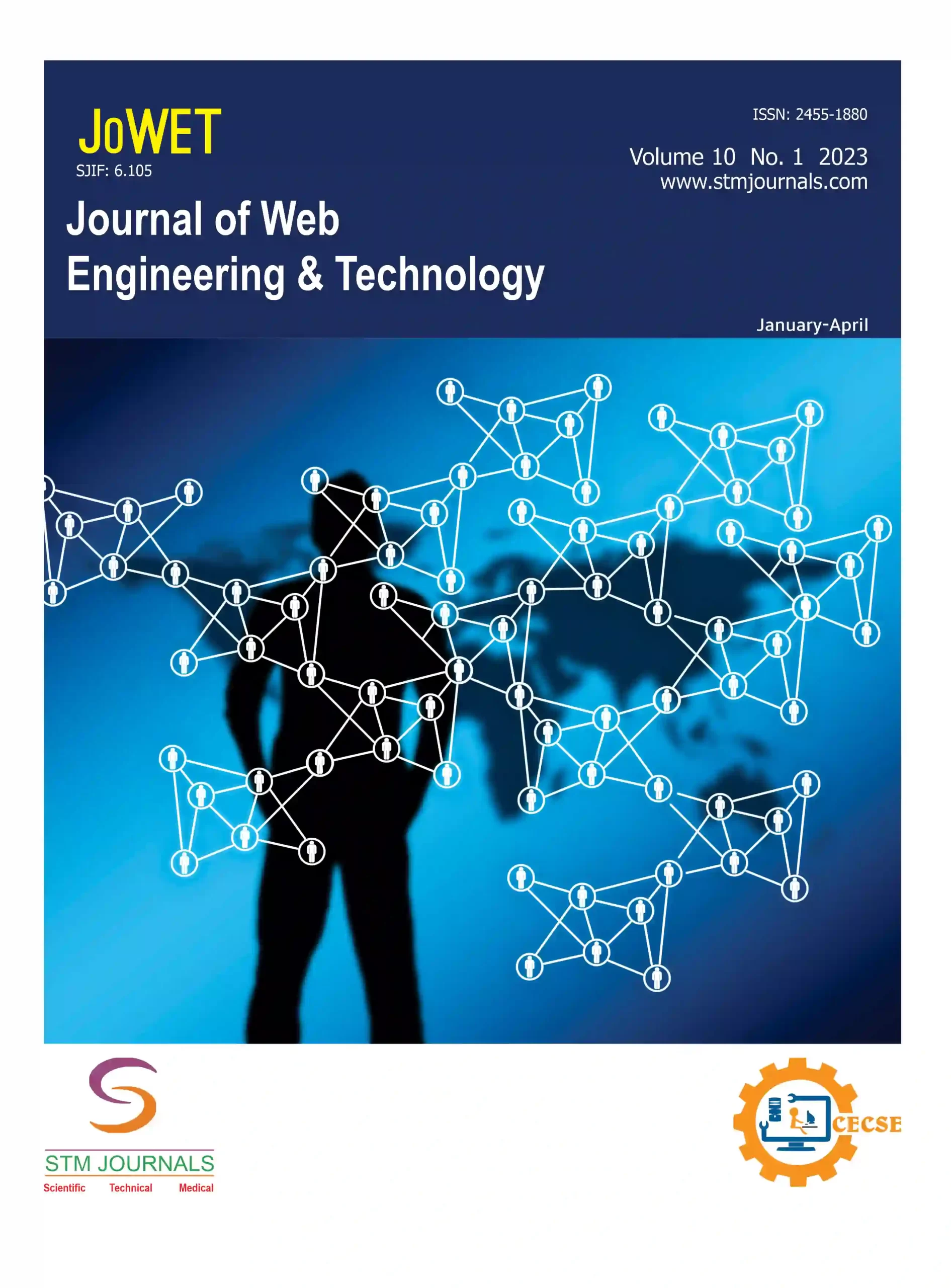
Journal of Web Engineering & Technology
ISSN: 2455-1880
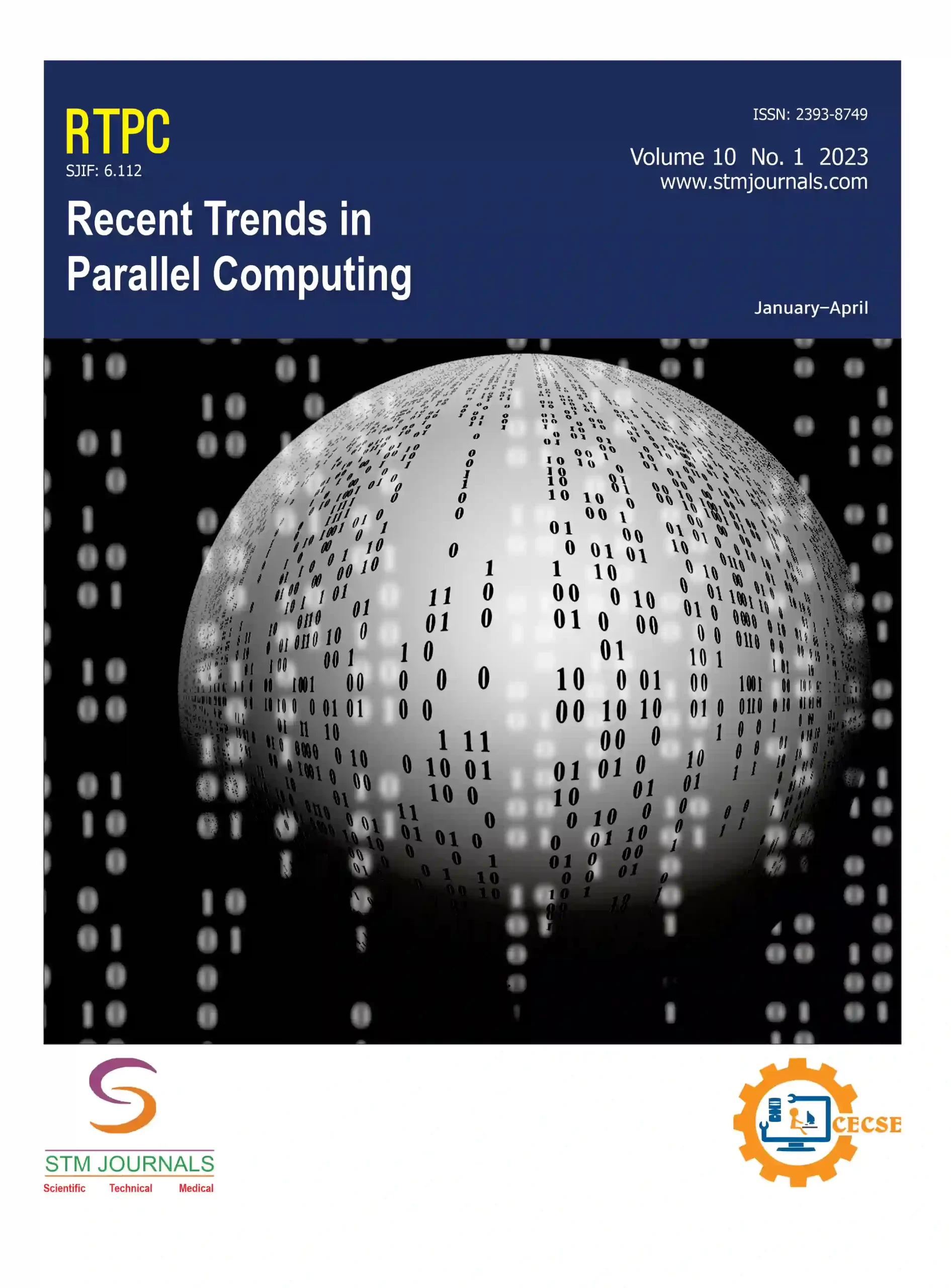
Recent Trends in Parallel Computing
ISSN: 2393-8749

Recent Trends in Programming languages
ISSN: 2455-1821

Research & Reviews: Discrete Mathematical Structures
ISSN: 2394-1979
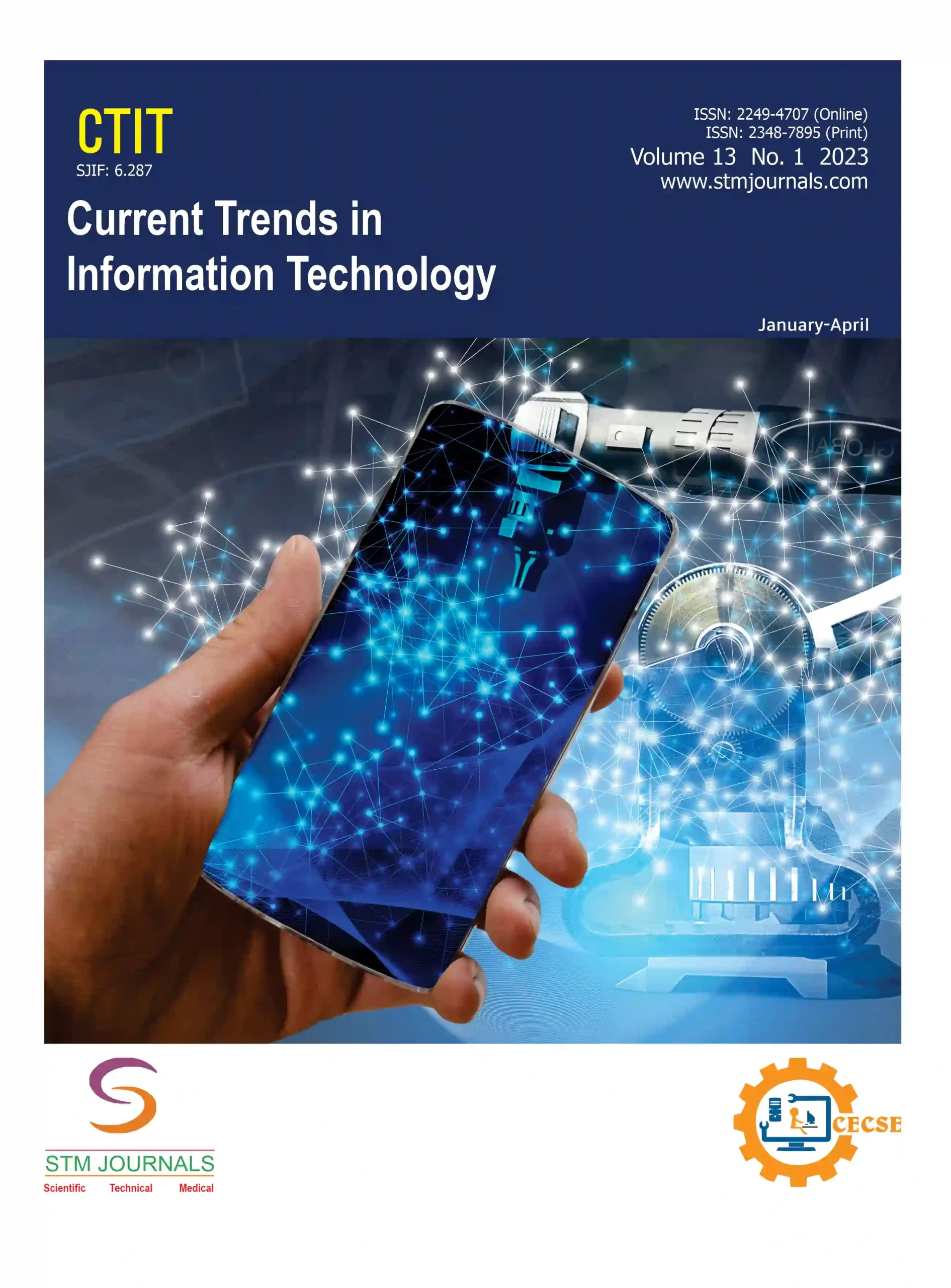
Current Trends in Information Technology
ISSN: 2249-4707
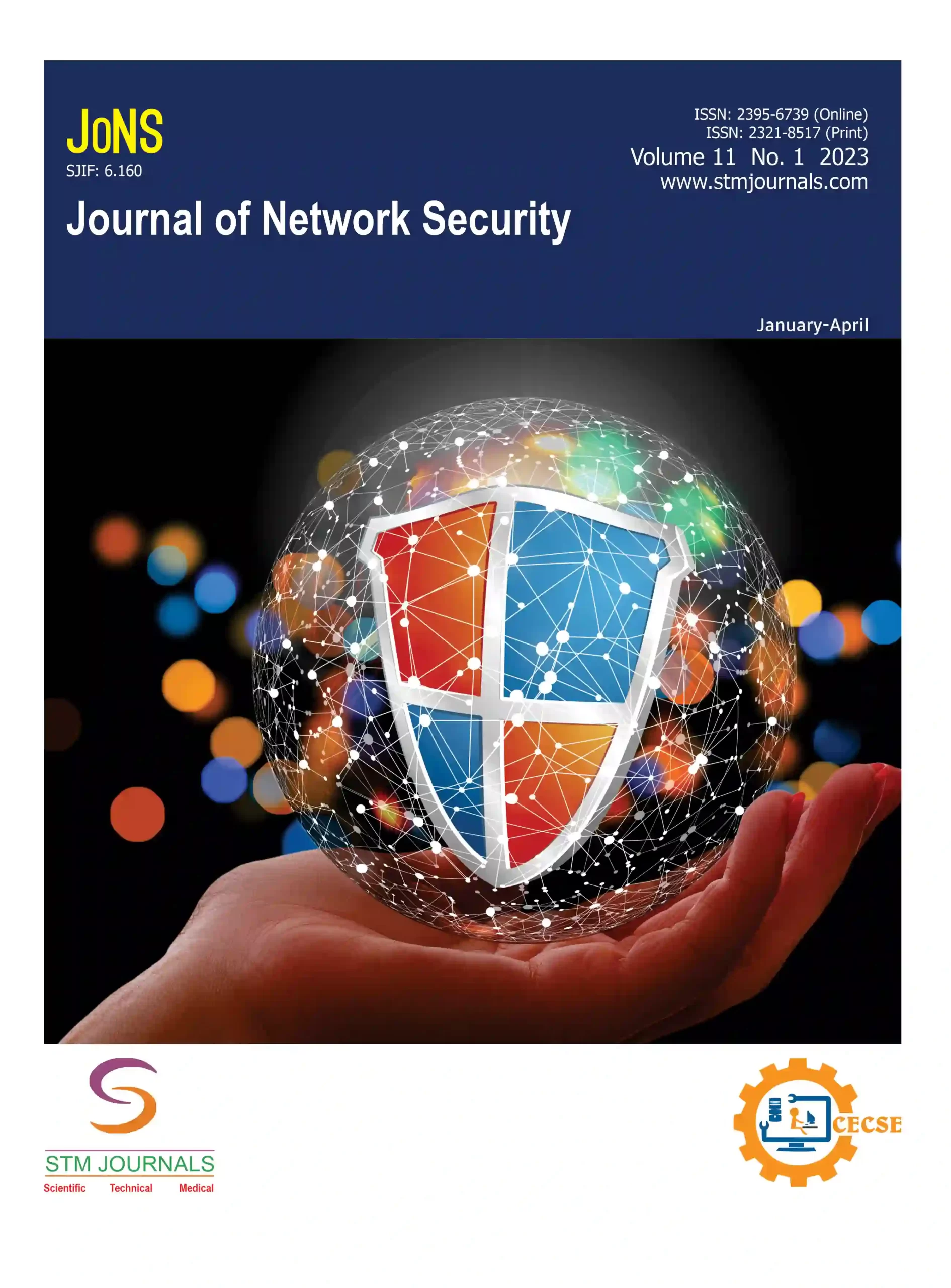
Journal Of Network security
ISSN: 2395-6739

Journal of Instrumentation Technology & Innovations
ISSN: 2249–4731
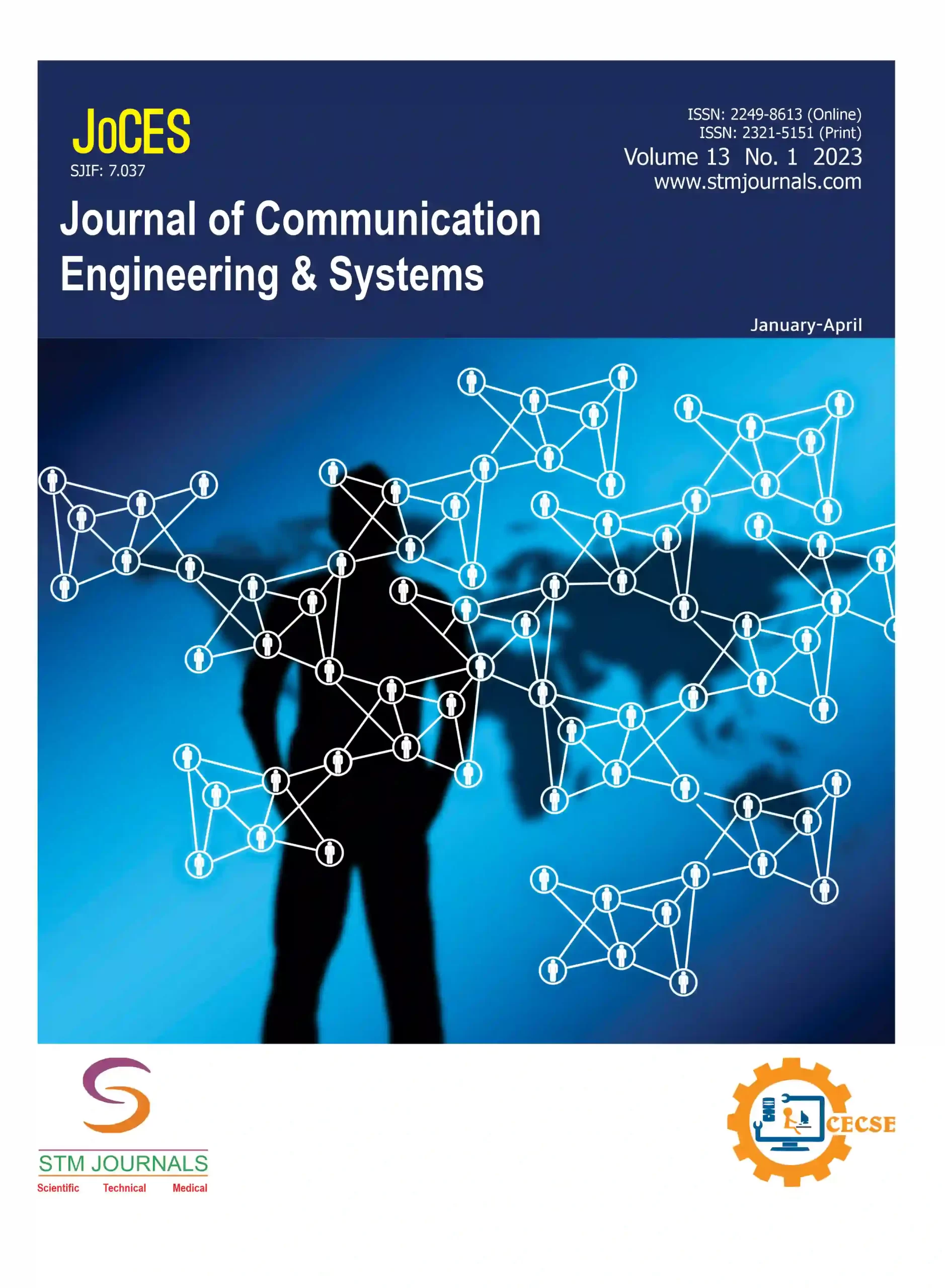
Journal of Communication Engineering & Systems
ISSN: 2249-8613

Journal of Power Electronics and Power Systems
ISSN: 2249-863X

Trends in Electrical Engineering
ISSN: 2249-4774

Journal of Control & Instrumentation
ISSN: 2229-6972

International Journal of Electrical Machines and Drives

Journal of VLSI Design Tools and Technology
ISSN: 2249-474X

International Journal of Analysis of Electrical Machines

International Journal of Electrical Power System and Technology
ISSN: 2455-7293

International Journal of Microelectronics and Digital Integrated Circuits
ISSN: 2456-3986

International Journal of Analog Integrated Circuits
ISSN: 2582-3620

International Journal of Power Electronics Controllers and Converters
ISSN: 2456-1614

International Journal of Electrical Communication Engineering

International Journal of Automatic Control System

Journal of Electronic Design Technology
ISSN: 2229-6980
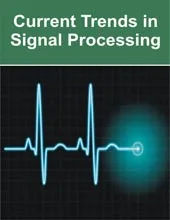
Current Trends in Signal Processing
ISSN: 2277–6176

Trends in Opto-electro & Optical Communication
ISSN: 2231-0401

Journal of Semiconductor Devices and Circuits
ISSN: 2455-3379

Journal of Microelectronics and Solid State Devices
ISSN: 2455-3336

Recent Trends in Electronics Communication Systems
ISSN: 2393-8757

Journal of Microcontroller Engineering and Applications
ISSN: 2455-197X

Journal of Microwave Engineering and Technologies
ISSN: 2349-9001

Journal of Telecommunication, Switching Systems and Networks
ISSN: 2454-6372

Recent Trends in Sensor Research & Technology
ISSN: 2393-8765

International Journal of Radio Frequency Design

International Journal of VLSI Design and Technology

International Journal of Embedded Systems and Emerging Technologies
ISSN: 2456-723X

International Journal of Digital Electronics

International Journal of Digital Communication and Analog Signals
ISSN: 2455-0329

International Journal of Microwave Engineering and Technology
ISSN: 2455-0337

International Journal of Satellite Communication Remote Sensing

International Journal of Broadband Cellular Communication
ISSN: 2455-8532

International Journal of Telecommunications & Emerging Technologies
ISSN: 2455-0345

International Journal of Solid State Materials

Journal of Nuclear Engineering & Technology
ISSN: 2277-6184

Journal of Alternate Energy Sources & Technologies
ISSN: 2230-7982

Journal of Energy, Environment & Carbon Credits
ISSN: 2249-8621

Journal of Thermal Engineering and Applications
ISSN: 2349-8994

Recent Trends in Fluid Mechanics
ISSN: 2455-1961

Journal of Human Rights Law and Practice
ISSN: 2581-8155

Journal of Intellectual Property rights Law
ISSN: 2582-9742

Journal of Corporate Governance and International Business Law
ISSN: 2584-1327

Journal of Banking and Insurance Law
ISSN: 2582- 6875

National Journal of Real Estate Law
ISSN: 2581-9682

National Journal of Environmental law
ISSN: 2581-6683

Journal of Taxation and Regulatory framework
ISSN: 2584-2269

Journal of Constitutional Law and Jurisprudence
ISSN: 2583-388X

Journal of Family and Adoption Law

Journal of Law of Torts and Consumer Protection Law
ISSN: 2583-3898

National Journal of Labour and Industrial Law
ISSN: 2583-6498

National Journal of Cyber Security Law
ISSN: 2582-9750

Indian Journal of Health & Medical Laws
ISSN: 2583-8350

Journal of Capital Market and Securities Law
ISSN: 2582-6905

National Journal of Criminal Law
ISSN: 2581-8244

Research & Reviews : Journal of Herbal Science
ISSN: 2278-2257

Research & Reviews : Journal of Botany
ISSN: 2278-2222

Research & Reviews : Journal of Agricultural Science and Technology
ISSN: 2278-2206

Research & Reviews : Journal of Crop science and Technology
ISSN: 2319-3395

Research & Reviews : Journal of Food Science & Technology
ISSN: 2278-2249

Research & Reviews : Journal of Dairy Science & Technology
ISSN: 2319-3409

Research & Reviews : Journal of Veterinary Science and Technology
ISSN: 2319-3441

Research & Reviews : Journal of Ecology
ISSN: 2278-2230

Research & Reviews : A Journal of Life Sciences
ISSN: 2249-8656

Research & Reviews: A Journal of Microbiology & Virology
ISSN: 2230-9853

Omni Science: A Multi-disciplinary Journal
ISSN: 2231-0398

Journal of Advancements in Library Sciences
ISSN: 2349-4352

Research & Reviews : Journal of Statistics
ISSN: 2278-2273

NOLEGEIN Journal of Management Information Systems
ISSN: 2581-6810

NOLEGEIN Journal of Business Ethics , Ethos & CSRw
ISSN: 2581-5601

NOLEGEIN Journal of Entrepreneurship Planning, Development and Management
ISSN: 2581-3900

NOLEGEIN Journal of Operations Research & Management
ISSN: 2581-5458

NOLEGEIN Journal of Supply Chain and Logistics Management
ISSN: 2582-0141

NOLEGEIN Journal of Financial Planning And Management
ISSN: 2581-4087

NOLEGEIN Journal of Performance Management & Retention Strategies
ISSN: 2581-5067

NOLEGEIN Journal of Human Resource Management & Development
ISSN: 2581-9461

NOLEGEIN Journal of Information Technology & Management
ISSN: 2581-6802

NOLEGEIN Journal of Business Risk management
ISSN: 2582-287X

NOLEGEIN Journal of Corporate & Business Laws
ISSN: 2581-7779

NOLEGEIN Journal of Organizational Behavior Management
ISSN: 2582-032X

NOLEGEIN Journal of Leadership and Strategic Management
ISSN: 2582-2888

NOLEGEIN Journal of Global Marketing
ISSN: 2581-9666

NOLEGEIN Journal of Advertising and Brand Management
ISSN: 2581-530X

NOLEGEIN Journal of Consumer Behavior & Market Research
ISSN: 2581-4400

International Journal of Composite Materials and Matrices
ISSN: 2582-435X

International Journal of Energetic Materials
ISSN: 2456-3978

International Journal of Metallurgy and Alloys
ISSN: 2456-5113

International Journal of Biomedical Engineering

International Journal of Ceramics and Ceramic Technology

International Journal of Polymer Science & Engineering
ISSN: 2455-8745

Trends in Mechanical Engineering & Technology
ISSN: 2231-1793

Journal of Experimental & Applied Mechanics
ISSN: 2230-9845

Journal of Mechatronics and Automation
ISSN: 2455-1988

Trends in Machine design
ISSN: 2455-3352

Journal of Automobile Engineering and Applications
ISSN: 2455-3360

Journal of Refrigeration, Air conditioning, Heating and ventilation
ISSN: 2394-1952

International Journal of Thermal Energy and Applications

International Journal of Production Engineering

International Journal of Manufacturing and Materials Processing
ISSN: 2582-5046

International Journal of Mechanical Handling and Automation

International Journal of Pollution and Noise Control

International Journal of Computer Aided Manufacturing
ISSN: 2456-642X

International Journal of I.C. Engines and Gas Turbines
ISSN: 2582-290X

International Journal of Mechanics and Design
ISSN: 2582-2896

International Journal of Robotics and Automation

International Journal of Industrial Engineering and Design

Journal of Production Research & Management
ISSN: 2249-4766

Research & Reviews : A Journal of Immunology
ISSN: 2277-6206
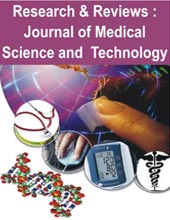
Research & Reviews : Journal of Medical Science and Technology
ISSN: 2319-3417

Research & Reviews : Journal of Surgery
ISSN: 2319-3425

Research & Reviews: A Journal of Dentistry
ISSN: 2230-8008

Research & Reviews: A Journal of Health Professions
ISSN: 2277-6192

Research & Reviews: A Journal of Medicine
ISSN: 2249-8648

Research & Reviews: A Journal of Neuroscience
ISSN: 2277-6427

Research & Reviews: A Journal of Toxicology
ISSN: 2231-3834

Research & Reviews: Journal of Oncology and Hematology
ISSN: 2319-3387

Journal of Aerospace Engineering & Technology
ISSN: 2231-038X

Research & Reviews : Journal of Space Science & Technology
ISSN: 2321-6506

Journal of Remote Sensing & GIS
ISSN: 2230-7990

Journal of Water Pollution & Purification Research
ISSN: 2394-7306

Nano Trends-A Journal of Nano Technology & Its Applications
ISSN: 0973-418X

Journal of Nanoscience, NanoEngineering & Applications
ISSN: 2231-1777

International Journal of Applied Nanotechnology
ISSN: 2455-8524

International Journal of Nanomaterials and Nanostructures
ISSN: 2455-5584

International Journals of Nanobiotechnology
ISSN: 2456-0111

International Journal of Composite and Constituent Materials
ISSN: 2456-5237

Journal of Nursing Science & Practice
ISSN: 2249-4758

International Journal of Immunological Nursing
ISSN: 2456-1592

International Journal of Cardiovascular Nursing
ISSN: 2581-7051

International Journal of Neurological Nursing
ISSN: 2456-5229

International Journal of Orthopedic Nursing and Practices

International Journal of Oncological Nursing and Practices

International Journal of Obstetrics, Perinatal and Neonatal Nursing
ISSN: 2455-6424

International Journal of Pediatric Nursing
ISSN: 2455-6343

International Journal of Emergency and Trauma Nursing and Practices

International Journal of Nursing Critical Care
ISSN: 2581-6209

International Journal of Nursing Science Practice and Research
ISSN: 2455-6351

International Journal of Community Health Nursing And Practices
ISSN: 2583-9136

International Journal of Geriatric Nursing
ISSN: 2581-9062

International Journal of Women’s Health Nursing And Practices
ISSN: 2584-170X

International Journal of Medical Surgical Nursing
ISSN: 2581-6950

International Journal of Evidence Based Nursing And Practices

Research & Reviews: A Journal of Pharmaceutical Science
ISSN: 2229-7006

Research & Reviews: A Journal of Pharmacology
ISSN: 2230-9861
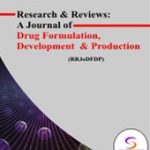
Research & Reviews: A Journal of Drug Formulation, Development and Production
ISSN: 2394-1944

Research & Reviews: A Journal of Drug Design & Discovery
ISSN: 2349-9036

Trends in Drug Delivery
ISSN: 2394-7268

International Journal of Optical Sciences

International Journal of Electro Mechanics and Mechanical Behaviour

Research & Reviews : Journal of Physics
ISSN: 2278- 2265

International Journal of Cell Biology and Cellular Functions

International Journal of Molecular Biotechnological Research

International Journal of Biochemistry and Biomolecule Research

International Journal of Bioinformatics and Computational Biology
ISSN: 2583-9977

International Journal of Genetic Modifications and Recombinations

International Journal of Pollution: Prevention & Control

International Journal of Midwifery Nursing And Practices
ISSN: 2584-0800

International Journal of Electrical Power and Machine Systems

International Journal of Electrical Machine Analysis and Design

International Journal of Electrical and Communication Engineering Technology

International Journal of Algorithms Design and Analysis Review
ISSN: 2584-1866

International Journal of Advanced Control and System Engineering

International Journal of Information Security Engineering

International Journal of Computer Science Languages

International Journal of Mobile Computing Technology

International Journal of Wireless Security and Networks
ISSN: 2584-0703

International Journal of Data Structure Studies

International Journal of Electro-Mechanics and Material Behavior

International Journal of Mechanical Dynamics and Systems Analysis

International Journal of Machine Systems and Manufacturing Technology

International Journal of Industrial and Product Design Engineering

International Journal of Advanced Robotics and Automation Technology

International Journal of Environmental Noise and Pollution Control

International Journal of Fracture Mechanics and Damage Science

International Journal of Robotics and Automation in Mechanics

International Journal of Energy and Thermal Applications

International Journal of Manufacturing and Production Engineering

International Journal of Crystalline Materials

International Journal of Mineral

International Journal of Nutritions

International Journal of Virus Studies

International Journal of Forest Sciences

International Journal of Atmosphere

International Journal of Pathogens

International Journal of Vaccines

International Journal of Toxins

International Journal of Brain Sciences

International Journal of Antibiotics
ISSN: 2584-2986

International Journal of Fungi

Emerging Trends in Personalized Medicines

Recent Trends in Infectious Diseases

International Journal of Cheminformatics

International Journal of Toxics

International Journal of Tropical Medicines

International Journal of Sustainability

Recent Trends in Cosmetics

International Journal of Universe

International Journal of Land

International Journal of Education Sciences

International Journal of Radio Frequency Innovations

International Journal of Electronics Automation

International Journal of VLSI Circuit Design & Technology

International Journal of Satellite Remote Sensing

International Journal of Solid State Innovations & Research

International Journal of Optical Innovations & Research

Recent Trends in Sports

International Journal of Membranes

Emerging Trends in Languages

Research & Reviews: A Journal of Embedded System & Applications
ISSN: 2395-6712

Emerging Trends in Symmetry

International Journal of Climate Conditions

International Journal on Drones

International Journal of Behavioral Sciences

International Journal of Marine Life

International Journal of Children

International Journal of Insects

Emerging Trends in Metabolites

International Journal of Trends in Horticulture

International Journal of Trends in Humanities

Recent Trends in Social Studies

International Journal of Biomedical Innovations and Engineering

International Journal of Advance in Molecular Engineering

International Journal of Photochemistry and Photochemical Research

International Journal of Toxins and Toxics

Recent Trends in Mathematics

Research & Reviews: A Journal of Bioinformatics
ISSN: 2393-8722
Journal Menu
Editor Overview
maintains an Editorial Board of practicing researchers from around the world, to ensure manuscripts are handled by editors who are experts in the field of study.

Mrs. J.Gnanadhinahari
Principal
Samarth Nursing College
Editor in Chief
International Journal of Evidence Based Nursing And Practices
Email :
Institutional Profile Link : http://sam. . .
Publisher
E-mail:
(Tel): {@publisher.contact
(Mob) (+91) 9810078958, +919667725932
Article Withdrawal Policy
Last updated: 2022-04-30
STM (Science, Technology, and Medicine) Journals understand the significance of upholding the integrity and comprehensiveness of the scholarly record for the benefit of researchers and librarians. We are deeply committed to maintaining trust in the authority of our electronic archive.
STM Journals uphold the fundamental principle of scholarly communication, which places the sole and independent responsibility for deciding which articles are to be published with the Journal's editor. This decision-making process is guided by the policies set forth by the Journal's editorial board and is subject to legal obligations concerning issues such as libel, copyright infringement, and plagiarism.
Article withdrawal, retraction, removal, or replacement are actions taken in exceptional circumstances where there is clear evidence of ethical violations, serious errors, or misconduct in published research articles. The responsibility of deciding which articles to publish lies solely with the editor, who is guided by the policies of the Journal's editorial board and legal requirements concerning libel, copyright infringement, and plagiarism. Once an article has been published, it becomes part of the scholarly archive, which serves as a permanent record of scholarly transactions, and published articles are expected to remain unaltered as much as possible.
Article Withdrawal
Scenerios
- Ethical violations: If an article is found to contain data fabrication, falsification, or plagiarism, it may be retracted to maintain the integrity of the scientific record.
- Serious errors: If an article contains serious errors or inaccuracies that invalidate the findings or conclusions, it may be retracted to prevent dissemination of incorrect information.
- Misconduct: If an author is found to have engaged in scientific misconduct, such as manipulation of data, conflicts of interest, or undisclosed funding sources, the article may be retracted.
- Legal issues: If an article contains material that infringes on copyright, libel, or other legal issues, it may be removed to prevent legal action against the publisher or author.
- Safety concerns: If an article contains information that may pose a risk to public health or safety, it may be retracted or removed.
Consequences
- If the author, conference organizers, or a third party requests to withdraw a manuscript within a week of the acknowledgment email, there will be no withdrawal penalty.
- However, if the manuscript has already been submitted to a Journal for processing, the request for withdrawal will not be entertained without a withdrawal penalty.
- The author needs to submit a written letter to STM Journals explaining the reason for withdrawal along with Manuscript Withdrawal Charges.
- STM Journals will provide the author with a formal letter of Manuscript Withdrawal only after the withdrawal penalty has been paid in full.
- Authors are allowed to publish other manuscripts with STM Journals provided they follow the manuscript submission guidelines.
Measures
- Ensure that the manuscript does not infringe on any copyrights.
- Obtain consent from all authors in the group for submission.
- Ensure that students and researchers have obtained prior permission from their guides and professors before submitting their manuscripts to Journals.
- Confirm that the manuscript has not been published partially or completely in any other Journal.
- Properly withdraw the manuscript from any previous publishers if necessary.
- Confirm that the manuscript has not been submitted to any other Journal at the time of submission to the current Journal.
- Avoid redundant publication, meaning publishing multiple similar manuscripts based on the same experiment.
Article Withdrawal Charge
$ 1500.00
Are you looking to withdraw your article?
---
Contact us at: [email protected]
Article Retraction
Article retraction states that the editor of a Journal is responsible for deciding whether to retract an article. The decision to retract an article is taken in exceptional circumstances, such as in cases of fraudulent data or unethical research. If a retraction is deemed necessary, the Journal will publish a retraction notice that clearly identifies the retracted article and the reason for the retraction. The retraction notice will be linked to the original article and will be prominently displayed on the Journal's website. The Journal will also ensure that the retracted article is clearly marked as "retracted" in all versions of the article, including those in the Journal's archives. The Journal will also inform any indexers or databases that have indexed the article about the retraction. In cases where the Journal becomes aware of a potential issue with an article, such as data or ethical concerns, the Journal will investigate the matter promptly and take appropriate action, including retraction if necessary.
- Plagiarism: If an article is found to have plagiarized content from other sources, it may be retracted.
- Data fabrication: If an article is found to have fabricated or falsified data, it may be retracted.
- Ethical violations: If an article is found to have violated ethical standards, such as by conducting research on human subjects without proper consent, it may be retracted.
- Errors or inaccuracies: If an article is found to contain errors or inaccuracies that significantly affect the conclusions, it may be retracted.
- Duplication: If an article is found to be substantially similar to another previously published article, it may be retracted as a duplicate publication.
- Legal issues: If an article is found to violate copyright laws or contain defamatory content, it may be retracted.
Scenerios
Consequences
Manuscript retraction is an important matter in scholarly publishing. The aim of STM Journals is to ensure the accuracy and integrity of the scientific record, and therefore we have established policies to govern the retraction of manuscripts.
- Retractions may be necessary if:
- There is clear evidence that the findings are unreliable or fraudulent, including but not limited to data fabrication or manipulation, plagiarism, or duplicate publication.
- There is a serious error or flaw in the study that invalidates the findings.
- The manuscript has been published in error, such as due to a technical or administrative issue.
In such cases, the retraction process will be initiated by the editor of the Journal, in consultation with the author(s) and any relevant third parties. The editor will make the final decision on whether to retract the manuscript, taking into account any relevant input and guidelines from external bodies. If a manuscript is retracted, it will be clearly marked as such, and a notice of retraction will be published prominently in the Journal, along with a clear explanation of the reason(s) for the retraction. The retracted manuscript will remain available online as a historical record, but will be clearly marked as retracted and its content should not be used or cited.
Article Retraction Charge
$ 2000.00
Is your article published anywhere else?
---
Article Removal
Manuscript removal is a serious matter that should only be considered in exceptional circumstances. At STM Journals, we have a policy in place for manuscript removal to ensure the integrity of our publications and safeguard the interests of our readers, authors, and publishers.
- Grounds for removal
- A manuscript may be removed from our publication if it contains material that is defamatory, fraudulent, or otherwise in breach of our ethical standards or legal requirements.
- Notification
- If we become aware of any grounds for removal, we will notify the author(s) and the publisher(s) of the manuscript, giving them an opportunity to respond.
- Investigation
- We will conduct an investigation into the matter and assess whether the grounds for removal are justified. We may seek expert advice or consult our editorial board in this process.
- Decision
- If we determine that the grounds for removal are justified, we will make a decision to remove the manuscript from our publication. We will notify the author(s) and publisher(s) of this decision and provide reasons for it.
- Consequences
- Manuscript removal will result in the withdrawal of the article from our publication and its permanent removal from our online archives. We may also impose sanctions on the author(s) and/or publisher(s) of the manuscript, including banning them from submitting future manuscripts to our Journals.
- It is important to note that manuscript removal is a serious step that we take only as a last resort. We encourage all authors to adhere to our ethical standards and guidelines to ensure the integrity of our publications.
Article Replacement
STM's policy regarding article replacement is that it is not a common practice and is usually only considered in exceptional cases. If an author identifies a major error in their published article, they should contact the editorial office of the Journal in which the article was published and request a correction or retraction.
If the error is significant and cannot be corrected through a simple correction, and the author can provide a corrected version of the article, then the editorial board may consider replacing the original article with the corrected version. However, this decision will ultimately be made by the editorial board and will depend on the nature of the error and the impact it has on the article.
It is important to note that article replacement is not a routine practice and is only considered in exceptional circumstances. The Journal may also require a fee to cover the cost of the replacement process.
Scenerios
- Correction of errors or omissions in the original article
- Addition of new data or findings that significantly change the conclusions or implications of the article
- Revision of the methodology or analysis that affects the validity or reliability of the article's results
- Replacement of images or figures that were inaccurately or inappropriately presented in the original article
- Translation of the article into another language to reach a broader audience
- Republishing the article with a new title or formatting to enhance its visibility or accessibility
- Reprinting the article in a collection or anthology for academic or scholarly purposes.
Expressions of Concern
Expressions of Concern are issued in situations where there is significant evidence of:
- Unresolved questions regarding ethical compliance.
- Potential misconduct under investigation.
- Concerns about data integrity or reliability.
- Legal disputes that impact the article.
- Any other condition that significantly impacts the article's integrity but does not conclusively warrant withdrawal or retraction at the moment.
Grounds for Issuing an Expression of Concern
Expressions of Concern are issued in situations where there is significant evidence of:
- Allegations or evidence of misconduct (e.g., data fabrication, falsification, plagiarism).
- PSignificant errors or inaccuracies pending correction.
- Ethical issues concerning research participants or consent.
- Disputes about authorship, conflicts of interest, or funding sources that may affect the interpretation of the findings.
- Ongoing investigations by institutions or third parties that have not yet reached a conclusion.
Process and Resolution
- Preliminary Assessment:Upon identifying a potential issue that may warrant an Expression of Concern, the editorial team conducts a preliminary assessment and may engage with the authors, institutions involved, or external experts.
- Notification and Response:The corresponding author will be notified of the concerns and given an opportunity to respond or address the issues identified.
- Issuing the Expression:If the concerns are deemed significant and unresolved, the journal will issue an Expression of Concern, clearly detailing the nature of the concerns and indicating that the matter is under investigation or review.
- Linking and Accessibility:The Expression of Concern will be linked to the original article and made accessible to all readers, ensuring transparency.
- Final Resolution: Depending on the outcome of the investigation or resolution of the concerns, the Expression of Concern may be updated or followed by a retraction, correction, or statement of exoneration, as appropriate.
Requesting Article Changes: Withdrawal, Retraction, Removal, and Replacement
To request article withdrawal, replacement, retraction, or removal, follow the guidelines of the Journal or publisher where the article was published. Typically, the process involves the following steps:
- Contact the Journal or publisher's editorial office or customer service department and explain the situation. Provide the article title, author names, and any relevant details.
- Depending on the situation, the Journal or publisher may require you to fill out a formal request form or provide additional documentation.
- If the request is approved, the Journal or publisher will typically issue a formal letter of withdrawal, replacement, retraction, or removal, and take the necessary steps to remove the article from their online platform or other databases.
- If the Journal or publisher does not agree to the request, they will provide an explanation for their decision.
It is important to note that there may be fees associated with some requests, such as manuscript withdrawal charges or replacement fees. Be sure to check the Journal or publisher's policy regarding these fees before making a request.
